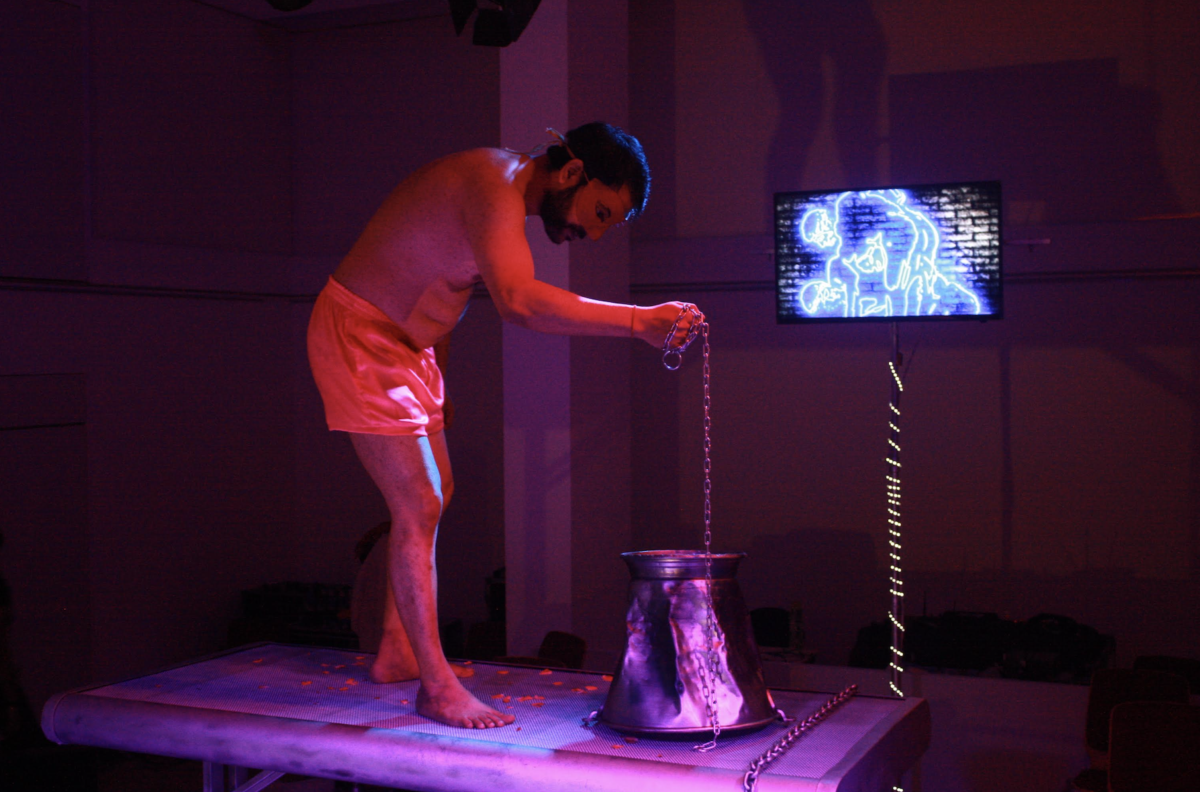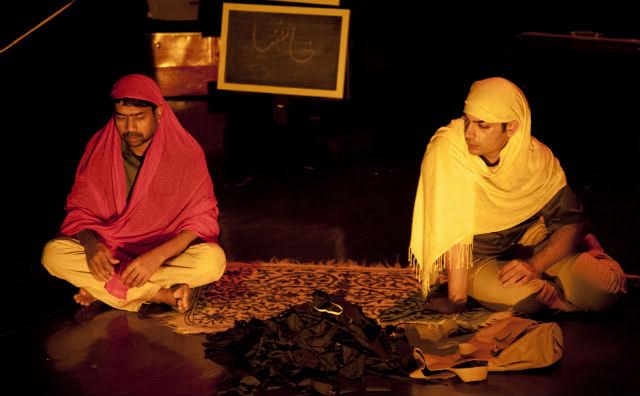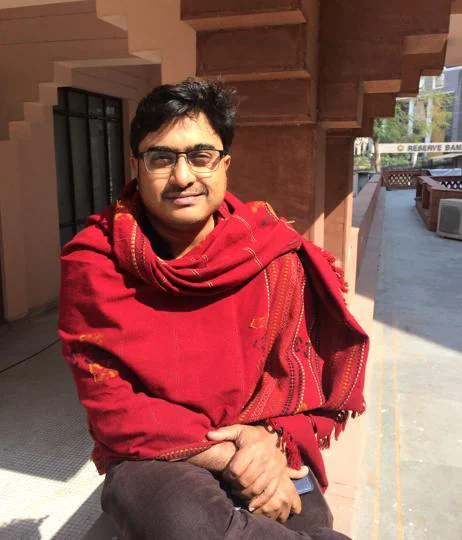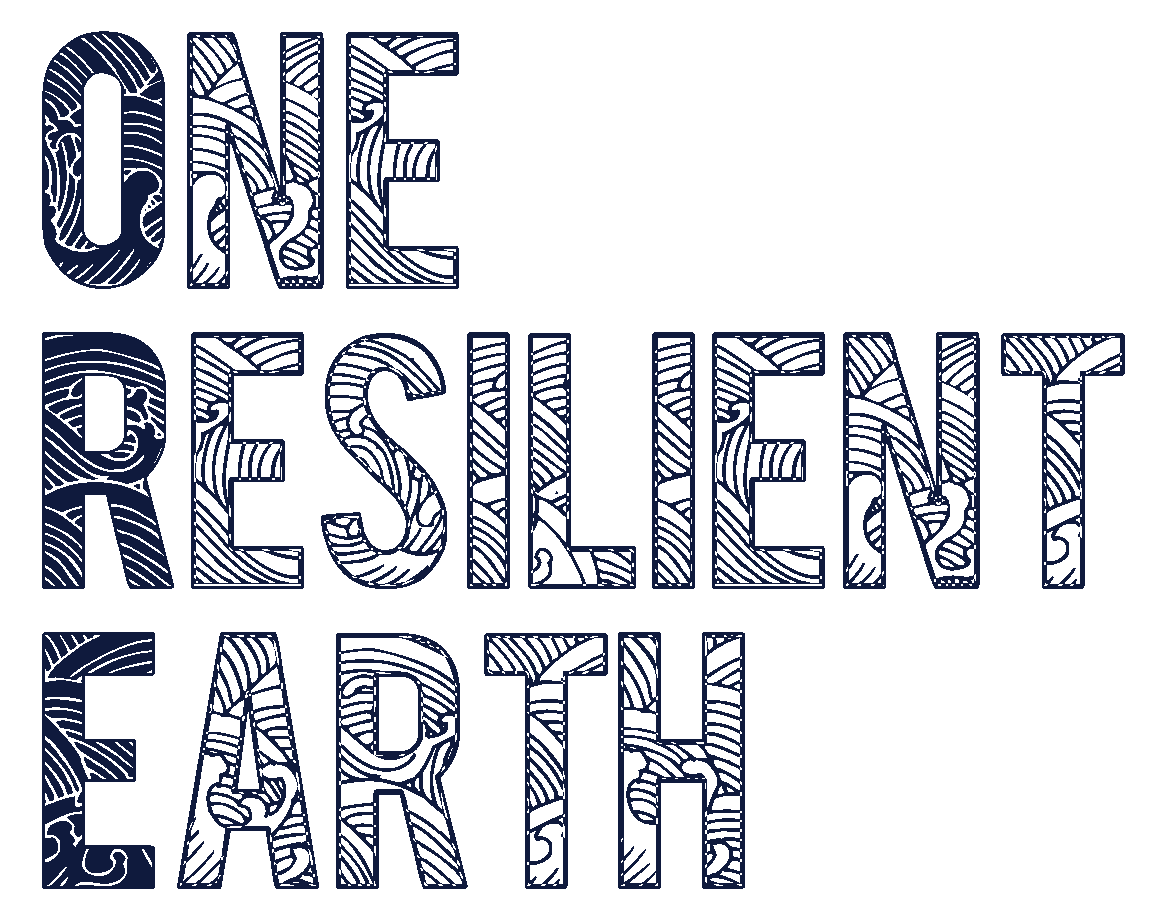The Open Mind Series is a selection of interviews with artists, designers and other ‘creators’ from around the world giving us an insight into how they see the world now and tomorrow. No qualifications required. No taboo. No right or wrong. Just openness. And artworks.
Has theatre helped you cope with the climate crisis? Or has it made it worse for you?
I have not really thought of ever coping with the climate crisis. I think I personally went through a period of confusion around it because the discourse around it used to be quite singularly around end of the world for the longest time, whereas my sense from my own surroundings was that there was something much more personal, philosophical, ethical, and present than an imminent doom around this crisis. Theatre definitely helped me understand it better I think.
What do you hope to leave the audience with?
An eye for irony.

Whom do you wish could see your plays/performances today?
The powerful decision makers of our planet who often seem to quote theory to defend false empiricism and false empiricism to defend theory out of context.
If there was no limit to what you could do, which story would you like to tell? Where would it be staged and with which protagonists?
I would like to write a three part story of the Indian ocean and direct it as an operatic piece. About the role of imperialism in setting up meteorological sites, completely ignoring indigenous populations only to save their own boats and settlements in the first part. The second part about where the ocean is today and the challenges that common fisherfolk face along with ocean life due to anthropic climate change, and the third part as a futuristic understanding of what might happen to life on the ocean. It would be staged in different parts of the world where people are making decisions around climate change, where people are interested to know more about what makes an ocean in the first place, and its primary characters would be a mix of futuristic animals and inhabitants of places like Hong Kong (early colonial ports) from the 16th-century onwards.
Do you have practices to make your work less wasteful and/or more sustainable?
Yes, several parts of our practice are entrenched in making the work and the rehearsal room sustainable. However, we can do much more in a much more focused way. We are still learning. In general, the theatre I make in India seems to be far more environmentally sustainable than the work I make in more industrial countries.

What inspires you the most in nature/in this world?
Music, silence, my daughter, books, argument.
What do you like to celebrate with your community?
Presence that is not there to distract us from reality, but one that gives us hope and a sense of being more than our small selves.

Because this is our favourite question, how do you imagine the world in 1000 years?
I imagine it to be full of moral contradictions, new religions, and in a phase of recovery from the ultimate collapse of the bubble of late stage capitalism and in its place, a new form of transactional relationship to exist between people. This system will be built around the how far back people can remember of what they have suffered as opposed to what they can aspire for.
I also imagine a restarting of the natural world which will be observed with the arrival of new insects.

